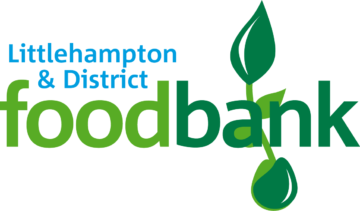How foodbanks work
Foodbank myths: the truth
There are many myths surrounding foodbanks and often they prevent people from seeking the help they need. Here we've listed and busted some of the most common myths you might have heard.
“You can’t use a foodbank if you work”
Anybody can be in need of emergency food; there is no one ‘type’ of person who goes to a foodbank. We help people who work full-time, part-time, zero hours contracts or multiple jobs. We help people who rely on welfare payments; we help individuals, couples and families. Anyone who is in crisis can get a foodbank voucher and come to us.
“People go to foodbanks to get free food so they can spend their money on alcohol, cigarettes, illegal drugs or tattoos”
Going to a foodbank is usually a last resort; we often see people who haven’t eaten for days because they didn’t want to admit they needed help. Frequently people walk past the foodbank several times before plucking up the courage to come in, and are often shocked that they’re in a situation where they need our help. Our volunteers regularly comfort people who are in tears of misery, frustration or anger at their situation. Without foodbanks these people would go hungry or have to resort to shoplifting or rummaging through bins in order to eat.
“If you have children the foodbank will contact social services”
This is one of the most damaging myths about foodbanks. If you are a parent or carer and attend the foodbank we will not automatically contact social services; being in crisis and needing emergency food has nothing to do with how well you care for your children.
“Foodbanks are only used by people who don’t know how to budget”
Budgeting is a useful skill but ‘life shocks’ such as redundancy, illness, unexpected bills or a relationship breaking down can all drastically reduce the amount of money available. If someone’s situation changes unexpectedly they can be left with less money than they need, no matter how cleverly they budget.
“Foodbank food is unhealthy”
The Trussell Trust works with independent nutritionists to ensure that the three days’ emergency food we provide is nutritionally balanced. A typical food parcel contains tinned fruit, tinned vegetables, UHT milk and pasta as well as many other items. We discuss people’s dietary requirements with them and adapt food parcels to suit their individual needs.
“Foodbanks only provide food”
Here at Littlehampton & District Foodbank we try to provide tin openers where needed as well as nappies, sanitary products, toiletries, dog food and cat food. We recognise that as well as food people often need help to tackle the underlying reasons for their crisis, and so we give people information about other agencies that can help or advise them. We also have a volunteer who is trained as a Money Mentor and can offer personalised advice on budgeting.
“You have to be a Christian to use a Trussell Trust foodbank”
We’re here to help people in need whatever their faith, beliefs or background.
“If someone needs a foodbank they shouldn’t have a flatscreen TV, a car, Sky TV, a computer, a mobile phone…”
The items that someone owns, or the contracts they entered into when they had sufficient money, have no bearing on whether they go into crisis. Anyone’s situation can change unexpectedly and frequently people find themselves unable to get out of contracts they’ve previously taken out for phones, computers or TV packages. In addition mobile phones and computers can be essential for keeping in touch with agencies to help the person out of crisis, while cars can be needed to get to interviews or for children to attend school. As for flatscreen televisions, when was the last time you saw an old-style television for sale…?
“People become dependent on foodbanks”
Nobody should be dependent on emergency food parcels, which is why we work closely with other local agencies to ensure everyone has access to the help they need. If someone needs a Trussell Trust foodbank more than three times in six months our system flags it and we can have a chat with the person to check they’re working with the right agencies for their situation. On average people only need two vouchers in a year to help them out of crisis.
